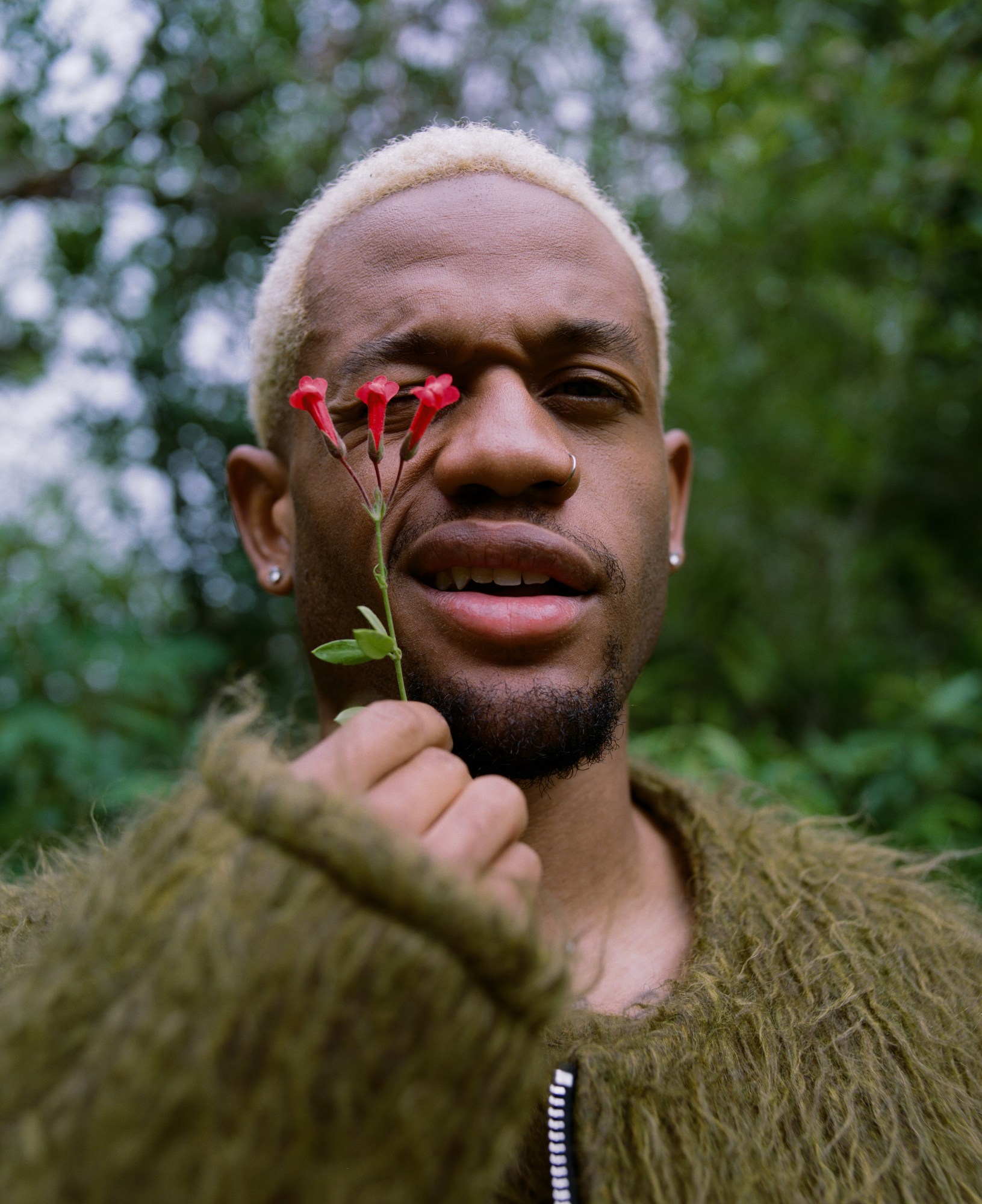Demetrius Harmon, mental health awareness and suicide prevention activist, is encouraging a generation to give a little more. “There’s no reason to be greedy with love,” Harmon says from L.A., as he encourages a generation to face emotional challenges with vulnerability and to embrace the recognition of self-worth.
Hailing from Detroit and known on social media as @MeechOnMars, Harmon gained popularity through social media, posting his comedic videos to YouTube and Vine, along with comedy skits made with childhood friend Angelo Zeigler (aka @DopeIsland). But it was on Tumblr that Harmon started expressing the more serious parts of his emotions, through poetry, gaining an audience of people sympathetic to his own personal battles with depression. “I felt like if I can share when something good happens, I should be able to share when something bad does,” Harmon says. “It breaks the idea that there’s a perfect life, like there’s a life without sorrow and things like that.”
Harmon is tackling the stigma around the discussion of mental health (especially among men and men of color). He tirelessly uses his platform to uplift others and share stories of mental health and his own struggles. Often speaking at panels on a national level, Harmon has also worked with organizations such as the American Foundation for Suicide Prevention, Black Emotional & Mental Health Collective, and Project Semicolon. He also releases apparel with the message “You Matter” with fans of the campaign including Yara Shahidi, Khalid, and 6Black. As Mental Health Awareness Month winds down, we spoke to Harmon about the importance of opening up to others, his own struggles, and sharing love.
What can you share about your own struggles you’ve had in the past?
I would say that my biggest issue was substances. I have a very addictive personality and so a lot of times I would be addicted to taking sleeping pills or just any substance, whether it would be weed, anything that could take me from the reality that I felt was the reality I was in. Ninth grade years are a blur to me—that’s when I went through the darkest days because a lot of change was going on, a lot of things I wanted to escape from. I didn’t have a sense of a direction and I also didn’t care where I was going. I felt defeated like at any point, any day, everything could have ended and I would have been okay with that. I still find myself in those moments where the days are kind of blending, they’re blurred together and repeating but I feel like I have a sense of direction and I genuinely care, I want to get back up every time I fall back down.
What was going on during that time?
That was my first time going to a different school in like forever. I went to the same school from the second grade to eighth, so all the people I knew were the same people. I never had to deal with moving or being the new kid for most of my life. But then also my brothers moved out, my parents were on the brink of getting a divorce—just a lot of new things going on I felt like I needed guidance, I needed help and no one was paying attention to me and I felt really invisible.
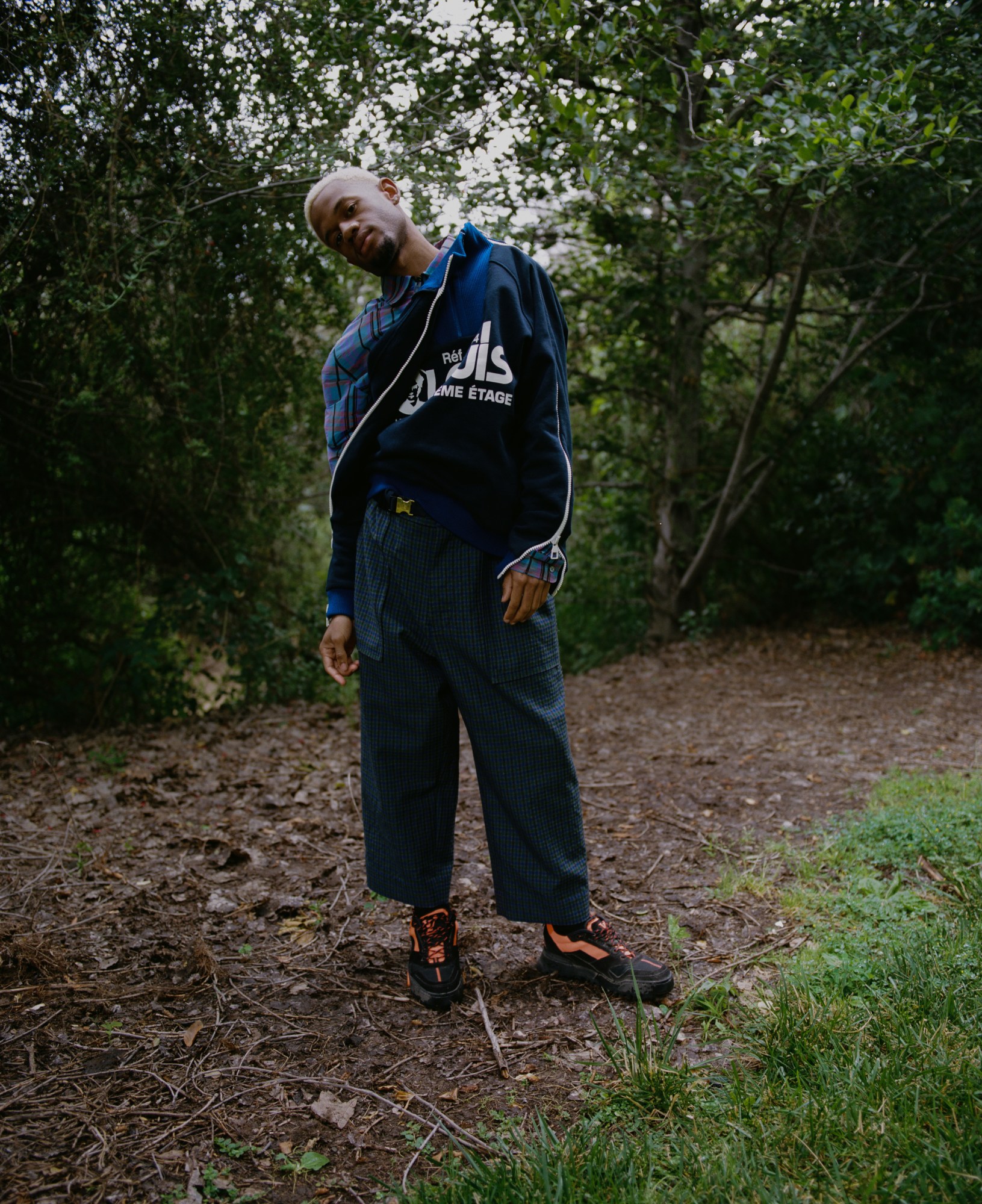
And how did you get help? Did you open up to someone?
My mom and my dad got into it and I was in my mom’s room on the bed, trying to take an after school nap. I noticed she was in the bathroom for an unreasonable amount of time and I know when I’m in the bathroom for an unreasonable amount of time, what I’m doing. I went to check on her and the door was locked – she answered and it was really low, like not any life in her response. I panicked, overthinking what I’d do in the bathroom. She finally opened the door but when I feared for what was happening, I shared what I was going through, where my mind goes in those times, just so she didn’t feel like she’s alone.
She wasn’t doing anything but she told me she had those thoughts where she felt the same way. A lot of the time when I felt that way, I felt like no one in the house understood what my mom understood. I didn’t want her to feel the same way so I shared it with her and she didn’t do a good job of keeping it a secret because then the next day we had a family intervention. I came home and my family was like, “You wanna kill yourself.” I was like “Oh shit” it was crazy. So from there my mom and dad went to family counseling—it just gave me the medium to speak to someone. That’s when I started going to counseling at school to talk about things.
And how did it feel to finally emerge from that place to find your core and strength?
I felt like a phoenix. I felt like I was born again from ashes, I felt vibrant. My biggest thing is when I look at pictures of me as a kid, I’m always smiling and I almost feel like when I was in the depths of it that I lost myself. I didn’t even have the same vibrancy, I didn’t have the same happiness and so I always wanted to get back to that. Once I got through it all and I started smiling, I started genuinely being happier and more frequently I could look at myself in the mirror and feel the difference.
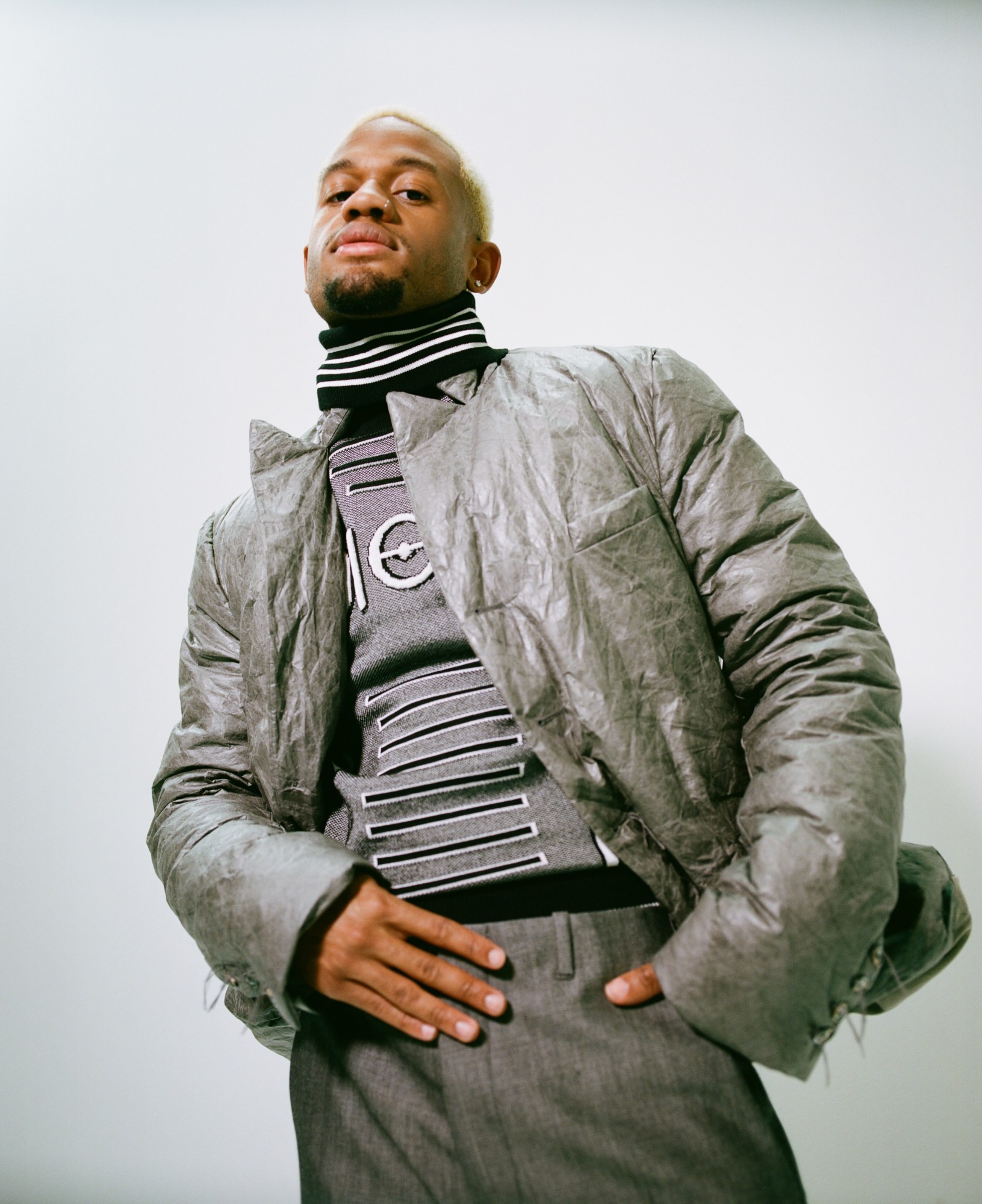
What led to the transition from comedy to sharing and expressing on a more personal level?
I come from Tumblr. I usually use Tumblr as much as I use Twitter now and Tumblr is a very personal place where people share their thoughts. I was like, “Oh, I love poetry” so I would share my poetry. The meaning behind a lot of poems were related to being vulnerable, about the things I was going through. People started asking me questions about what the poems meant. By the time I started getting popular on Vine and Twitter, I was already used to sharing because I saw the impact that it had on people and saw that through vulnerability comes strength and my vulnerability allows someone else to feel like being vulnerable. It’s not something to be scared of. It’s something I continue to do on Twitter and Instagram and it really just came from me being honest with myself and with people.
Especially with men, vulnerability can be treated as not being masculine. What do you think of the phrase “man up”?
It’s really restrictive in the sense that it makes someone think that there’s one idea of what being a man is. Every person is different but that doesn’t make them not a man or make someone more of a man than another. It makes little boys question themselves and keep toxic things inside of them because they’re fearful that they’re not being a man.
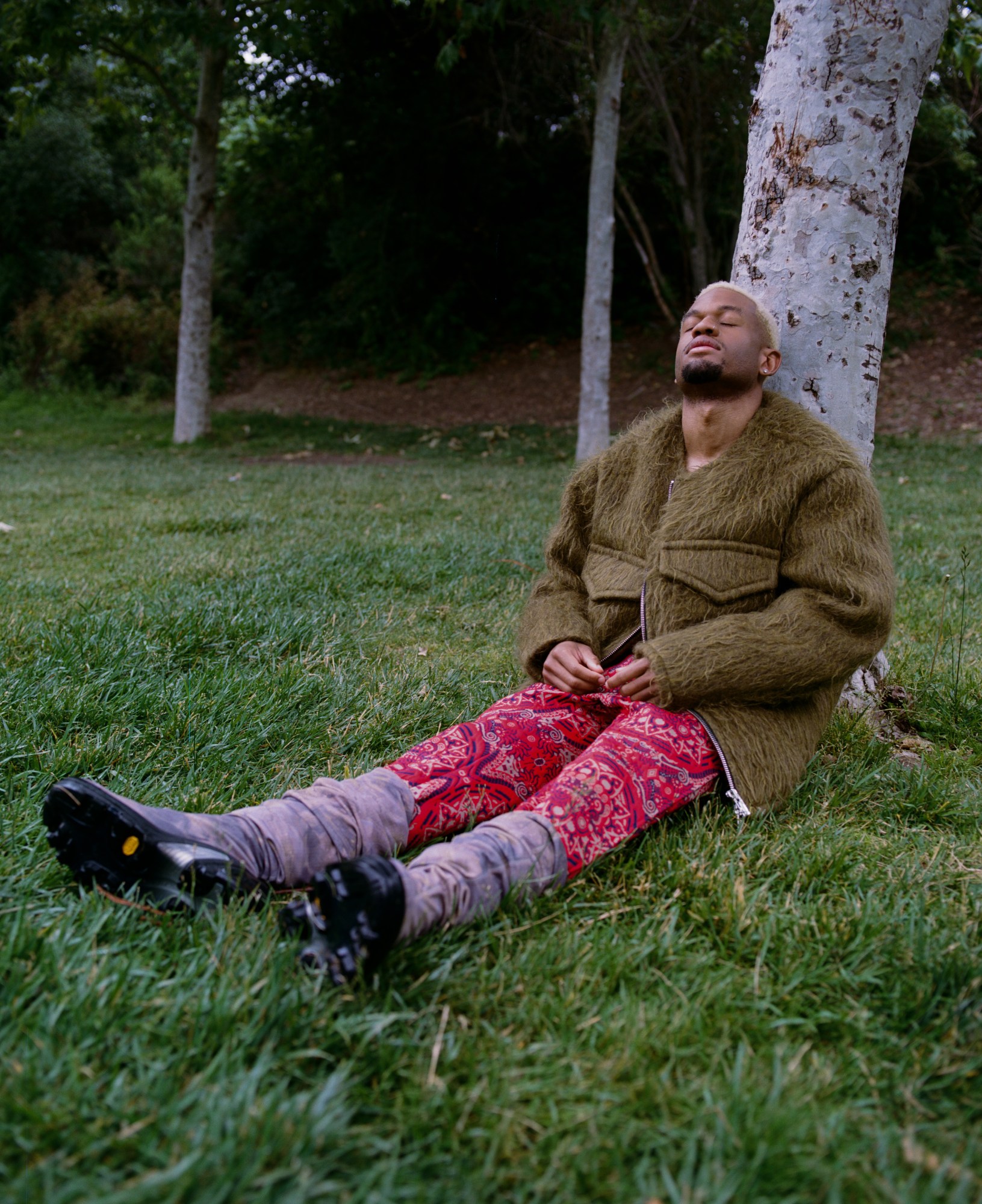
You’re shedding a light on issues that can be quite dark, and have a way of bringing light to your audience. How do you feel about the impact you’ve made?
I’m proud of it. It’s really overwhelming sometimes and not in a bad way, but every time I’m somewhere and [they’re] like really excited to see me and tell me I changed their lives or I saved their lives, every time they say it, I instinctively say “Really?” when I should be saying “Really.” Every time someone tells me I’ve had such a big impact on their life, I genuinely am taken aback and then when they start crying its crazy to me that a 21-year-old has impacted many people who are the same age as me, or a little older than me, that they look up to me the way I looked up to people while I was growing up.
You travel across the country sharing your story and doing a lot of advocacy work.
I gave a graduation speech last year and that’s what made people realize I had more to say than just comedy skits and I was capable of actually articulating how I feel in a way that I think a lot people hadn’t heard before. From there I started doing lectures at schools where I talk about a lot of different things – the whole point of my lecturing is I want it to feel hopeful whether I’m talking about depression or if I’m talking about jobs. I wanna effect people’s lives directly, and be able to see it. In Michigan I had a skating event last summer where we opened up a skating event – kids could come for free, all you had to do was pay for your skates and there were probably 200 kids. A lot of them didn’t know each other but by the time they left, a lot of them were friends. It was beautiful to see people who don’t know each other have time together. When there’s enough like-minded people in one room, the energy of it is almost just one energy, one vibe, one thought.
What can you share about the “You Matter” campaign?
“You Matter” started from talking to myself. When I was about to graduate, I didn’t know where I wanted to be, I didn’t know what I wanted to do. I knew I didn’t want to go to college, so I was thinking I really need to do something. I wrote down a bunch of different things that mattered to me—like my art matters, mental health, who I am, you know a bunch of different things. I kept putting “matters” on them like “you matter.” What I realized encompassed in the whole thing was “you matter.” I wanted these to be comfort hoodies for everyone, like you wouldn’t wanna take it off. From there I wanna take the hoodies and like how I was saying with the events, do things that directly affect people. I wanna do a lot of these different things that bring joy. I wanna be the ice cream truck. I wanna get an ice cream truck, drive it around and just give people ice cream and hoodies.
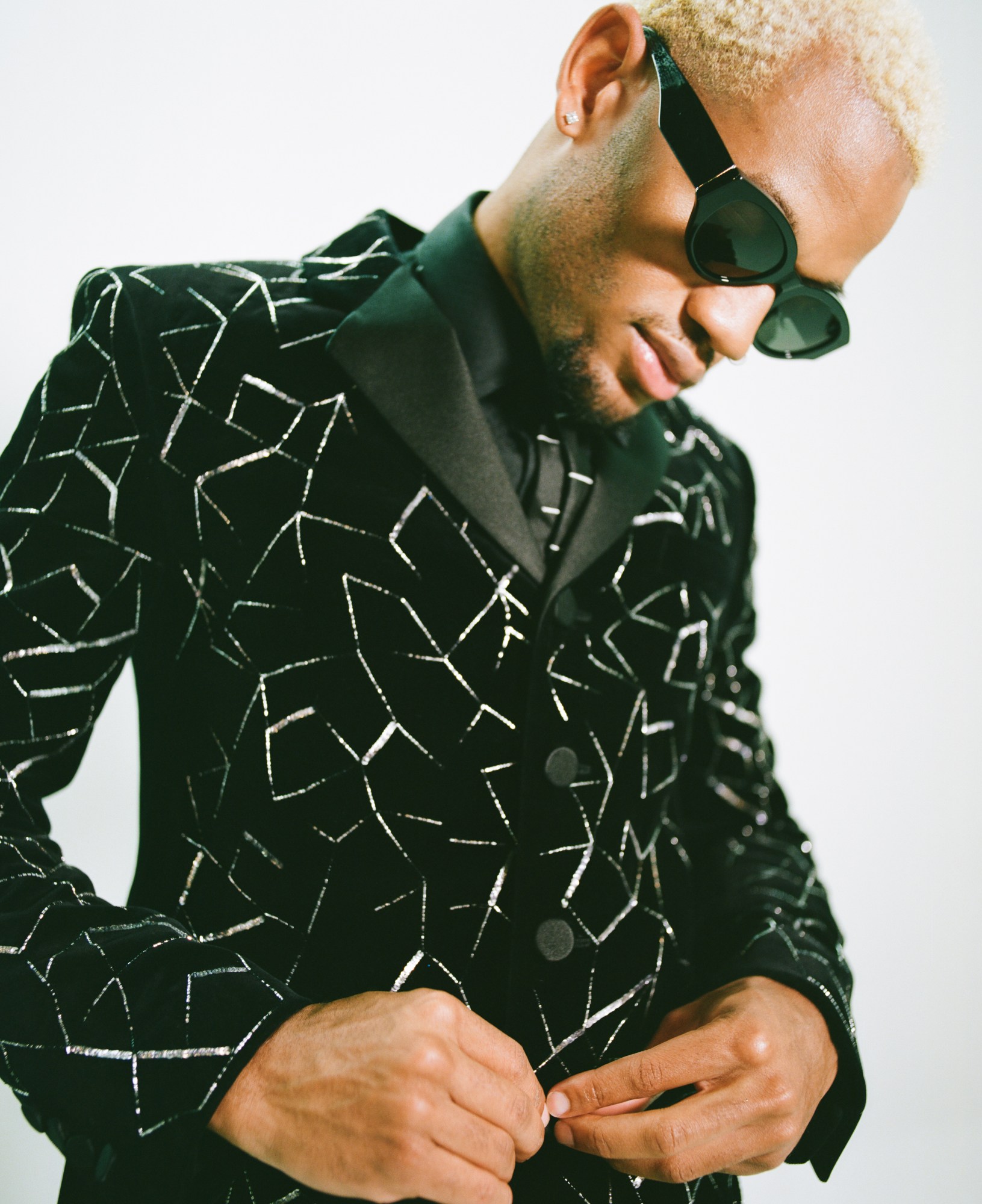
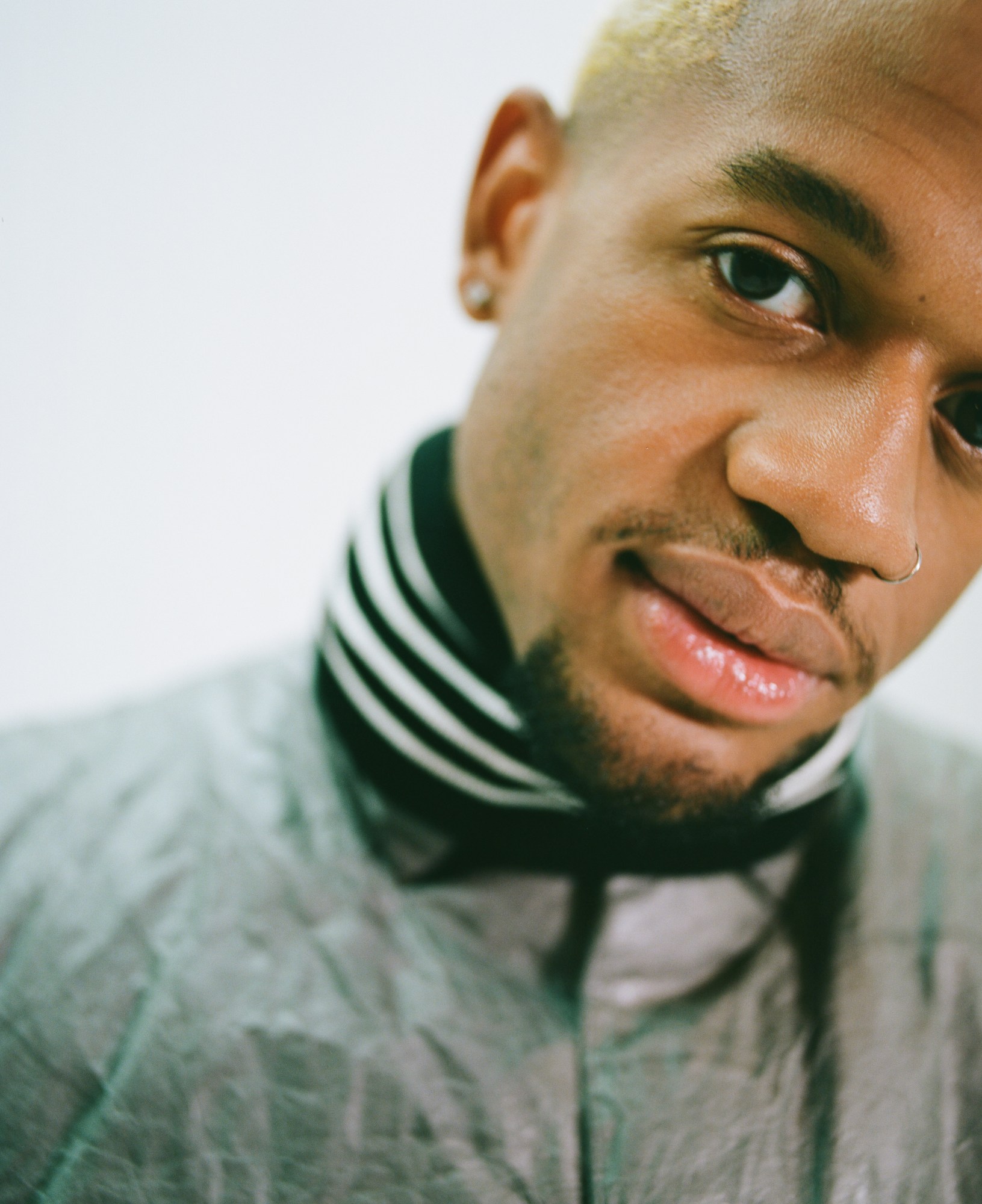
Credits
Photography Julian Burgueño
Styling Jordan Boothe
Grooming Eliven Quiros
Production The Hyphen8
